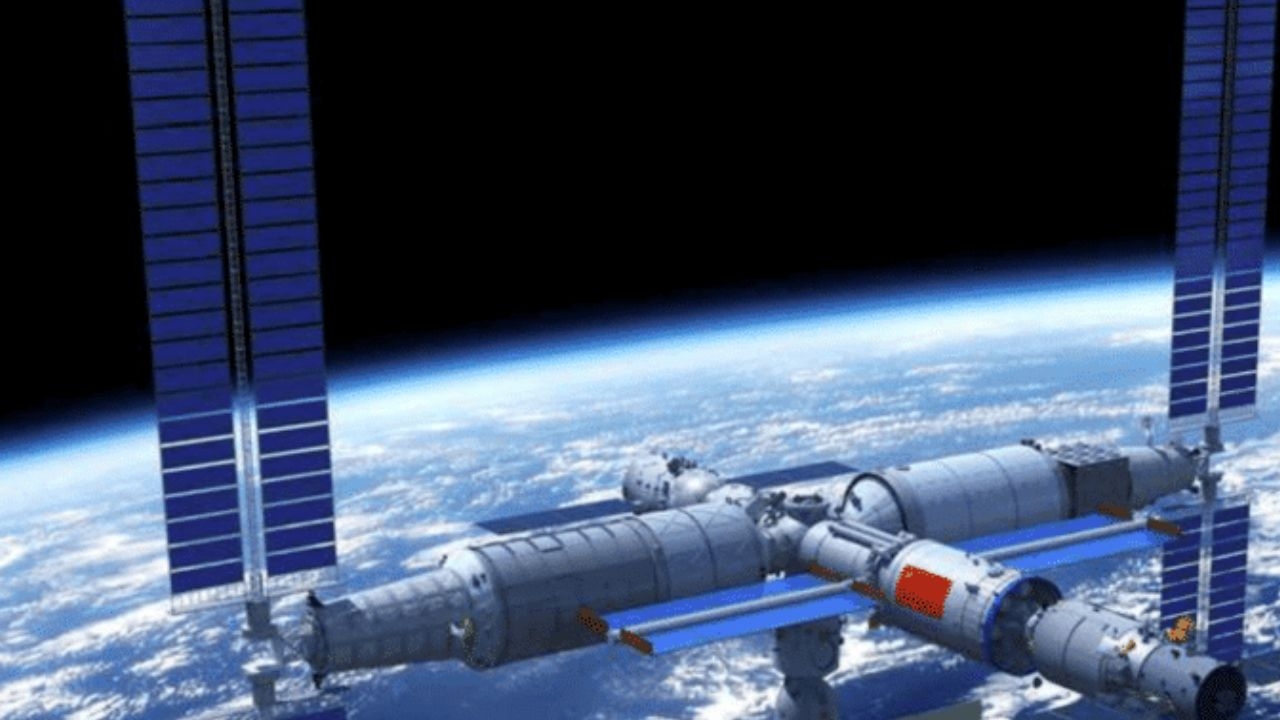China is preparing an ambitious expansion of its space station, planning to double its size from three to six units in the coming years. This initiative comes in response to the impending inactivation of NASA’s International Space Station, scheduled to occur after 2030.
The Chinese Academy of Space Technology (CAST) revealed these plans during the 74th International Astronautical Congress, held in Azerbaijan last Wednesday. According to CAST, the Chinese space station will have an operational life of more than 15 years, making it a robust and long-term alternative for near-Earth space missions.
The expansion of the Chinese space station represents an important step in the progress of space exploration, allowing astronauts from different countries to use it as a platform for their missions. This indicates China’s intention to play a leadership role on the international space stage by providing a viable and independent option for NASA’s International Space Station.
Tiangong
China’s space station, also known as Tiangong or “Heavenly Palace,” became fully operational in late 2022, providing space for up to three astronauts in orbit at an altitude of up to 450 kilometers. Expanded to six modules, the station now has a mass of 180 metric tons, although it still represents only 40% of the mass of NASA’s structure, which has the capacity to accommodate seven astronauts. However, it is important to note that the US space station, which has been in orbit for more than two decades, is scheduled to be decommissioned after 2030.
Great space power
China has ambitious plans to become a “space superpower”, and is not deterred by the approaching end of operation of the US space station. In fact, Chinese state media declared that the country “will not relent” in this transition and revealed that “several countries” have already expressed interest in sending astronauts to the Chinese space station. This demonstrates China’s growing role in space exploration and its willingness to cooperate internationally, providing a valuable platform for scientific research and future space missions. China is clearly establishing itself as a force to be reckoned with on the global space stage.
China’s increasing presence in space reflects its continuing efforts to explore and expand its horizons in the universe. With the expansion of the space station, the Asian country will be well positioned to carry out a wide range of scientific research, experiments and international cooperation.
International Space Station (images/reproduction/NASA)
While NASA plans to decommission its International Space Station after 2030, China is preparing to offer a powerful alternative that will continue to promote space exploration and international space cooperation. With these developments, China is establishing itself as an emerging and promising space power, ready to play a vital role in the next era of space exploration.
Featured Image: Tiangong Space Station (Reproduction/CNSA)

“Friendly zombie fanatic. Analyst. Coffee buff. Professional music specialist. Communicator.”

